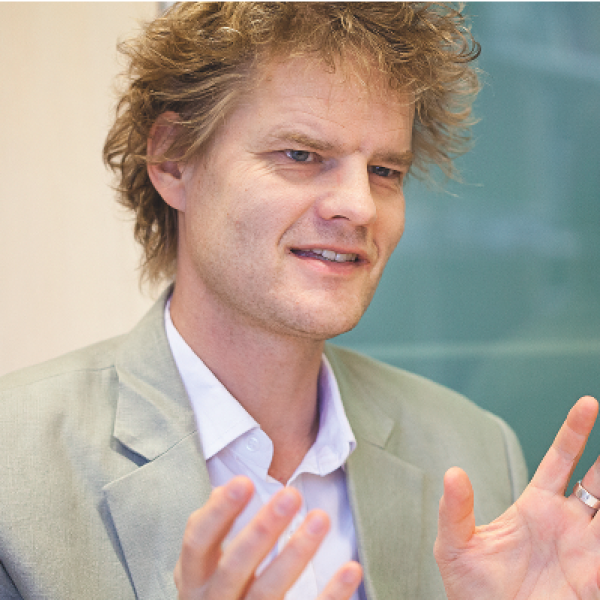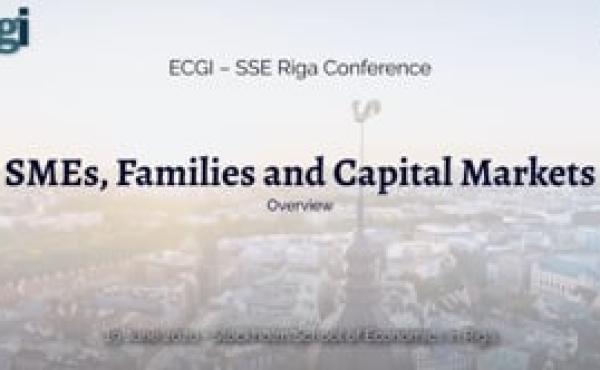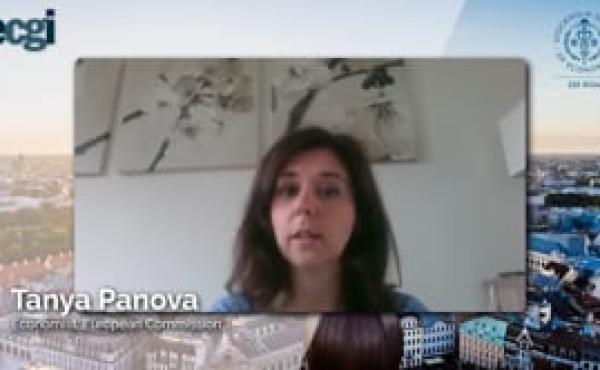Family Capitalism

Family controlled firms are ubiquitous, both among publicly listed and privately owned entities. They represent a key driver for supporting the transition toward a sustainable economy as they globally dominate some of the key sectors that have a significant environmental and social impact. Family firms have been lauded for their commitment to long-term goals, stability, authenticity and values. Yet, family-controlled firms face substantial corporate governance challenges. Succession is often complex and difficult to resolve. Listing on stock markets raises issues about corporate control. Institutional investors are often hostile to the use of dual class shares, tenure voting or other structures that allow families and founders to transit their vision over multiple generations. There are concerns about conflicts of interest and related party transactions.
Family controlled enterprises are essential for the future of capitalism and their role merits attention reflection and debate:
- Do family firms have sufficient access to capital markets?
- Are family enterprises more oriented to pursue the company's sustainable success in the long run?
- Are family firms truly committed to sustainability and ESG?
- Is the family firm model sufficiently understood by institutional investors?
- What governance measures could support and preserve their commitment toward a long-term sustainability of their businesses?
- A significant part of family enterprises is represented by SMEs: how do they tackle with sustainability opportunities and risks and what are the obstacles they encounter along this path?
There are also numerous policy initiatives that will directly or indirectly affect family firms. For example, the European Union's action plan to create a capital market union, listing rule reform in the UK and EU and elsewhere, the EU’s Entrepreneurship 2020 Action Plan and policy initiatives on sustainability at all levels.
ECGI research members have published extensively on family-controlled firms and their publications are among the most widely cited in the literature.
Traditional research topics include the role of the family in family firms, marriage, control enhancing mechanisms, private benefits, conflicts of interest, succession, performance, life-cycle, business owners and politics.
The ECGI Family Enterprise Programme is directed by Mary Johnstone-Louis (Senior Research Fellow, Saïd Business School, University of Oxford) and co-chaired by Morten Bennedsen (Niels Bohr Professor at the University of Copenhagen and André and Rosalie Hoffmann Chaired Professor of Family Enterprise at INSEAD) and Yupana Wiwattanakantang (Professor of Finance, NUS Business School, National University of Singapore).
--------------------
Researchers
The following are just some of the ECGI researchers working in the field:
Anete Pajuste | Latvia | Stockholm School of Economics (Riga) |
Brian Cheffins | United Kingdom | Cambridge University |
Antoinette Schoar | United States | MIT Sloan School of Management |
Belen Villalonga | United States | Stern School of Business, New York University |
Colin Mayer | United Kingdom | Said Business School, University of Oxford |
Julian Franks | United Kingdom | London Business School |
Marc Goergen | Spain | IE Business School |
Marianne Bertrand | United States | The University of Chicago Booth School of Business |
Mike Burkart | Sweden | London School of Economics and Political Science |
Morten Bennedsen | France | INSEAD |
Paolo Volpin | United Kingdom | Cass Business School |
Randall Morck | Canada | School of Business, University of Alberta |
Ronald Masulis | Australia | UNSW School of Business, University of New South Wales |
Woochan Kim | South Korea | Korea University Business School |
Yupana Wiwattanakantang | Singapore | NUS Business School, National University of Singapore |
Queries, suggested inclusions and other ideas?
















































